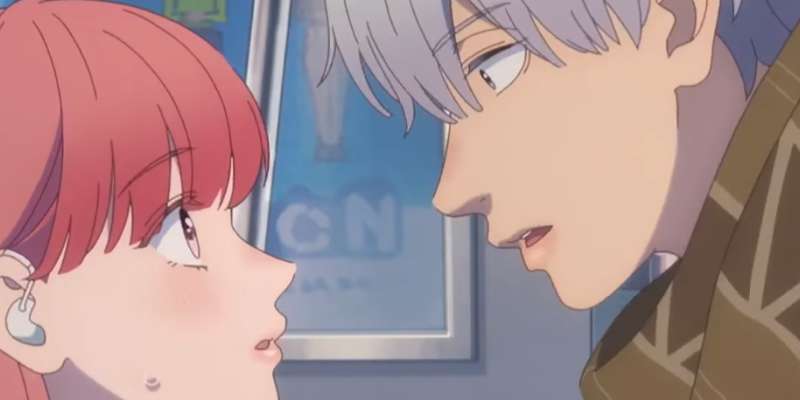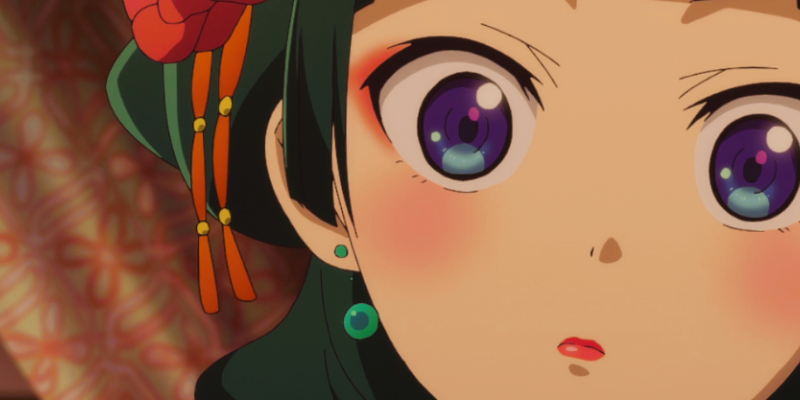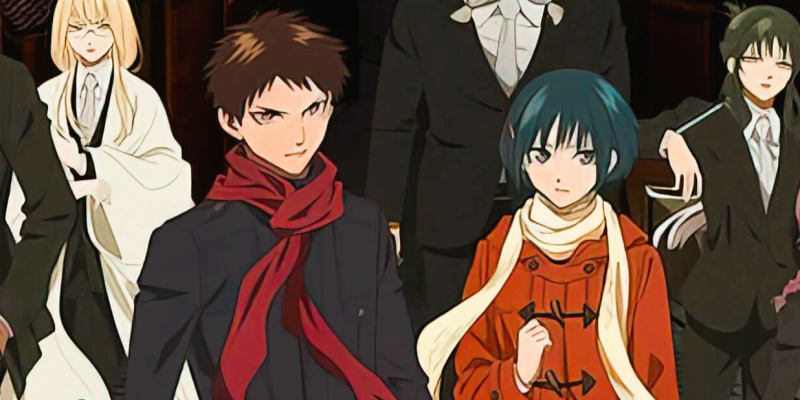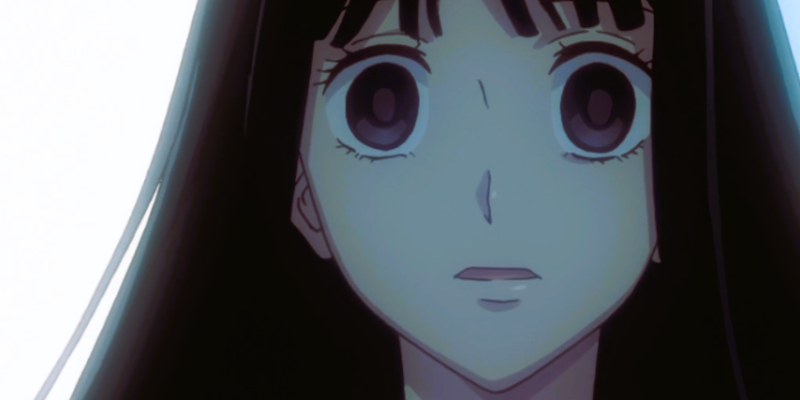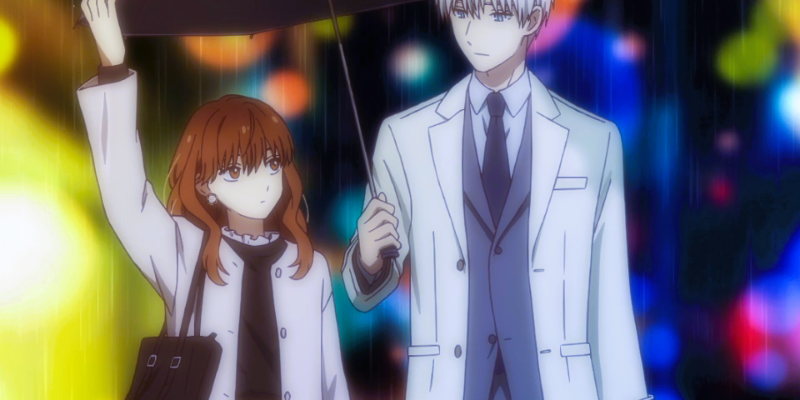That’s right – I finally started watching it! Frieren: Beyond Journey’s End is an unexpectedly good fantasy anime that started in Fall 2023, a bit later than most other series from that month. Because I knew nothing about it until halfway through the season, I didn’t cover any Frieren content on my blog. Well, now that changes.
Frieren currently has 18 episodes, and is scheduled to have 27 in total. So, the first thing I need to do is catch up on Frieren. I’ll do that in three blog posts. This one covers my notes on episodes 1 through 7. The next post will go over episodes 8 through 14. The third post will cover episodes 15 to whatever the most recent episdode is at that time.
Warning: Spoilers for Frieren: Beyond Journey’s End
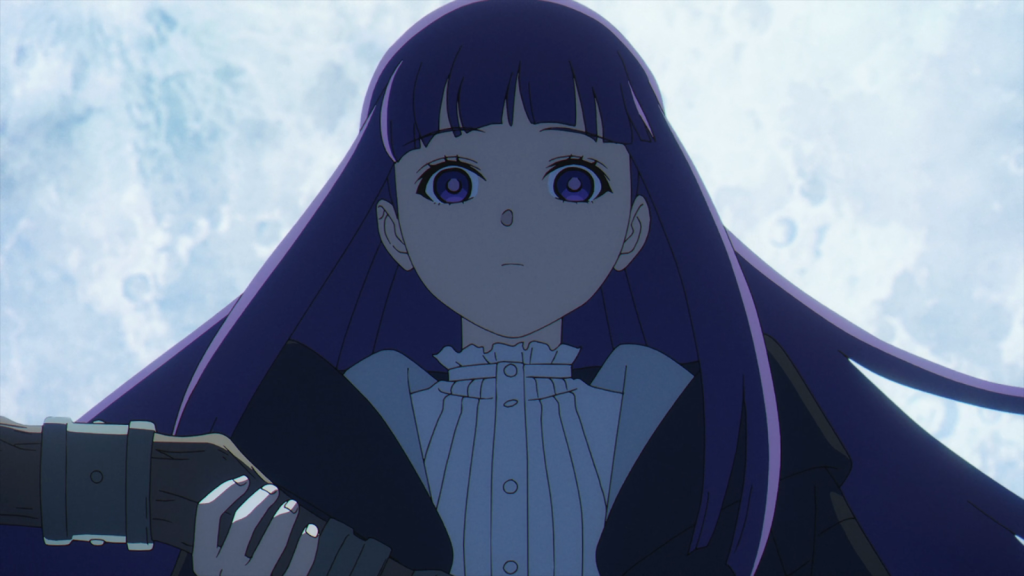
General Production Notes
I’m a big fan of studio Madhouse, which is another reason I wanted to try Frieren as soon as I heard about it. This studio has animated some of my favorite series. The animation is generally good, and Freiren is no exception. Its art and animation are highly enjoyable. You can tell the production value is high. In other words, even though the budget wasn’t big, the studio did its utmost to produce quality visuals working with what they had.
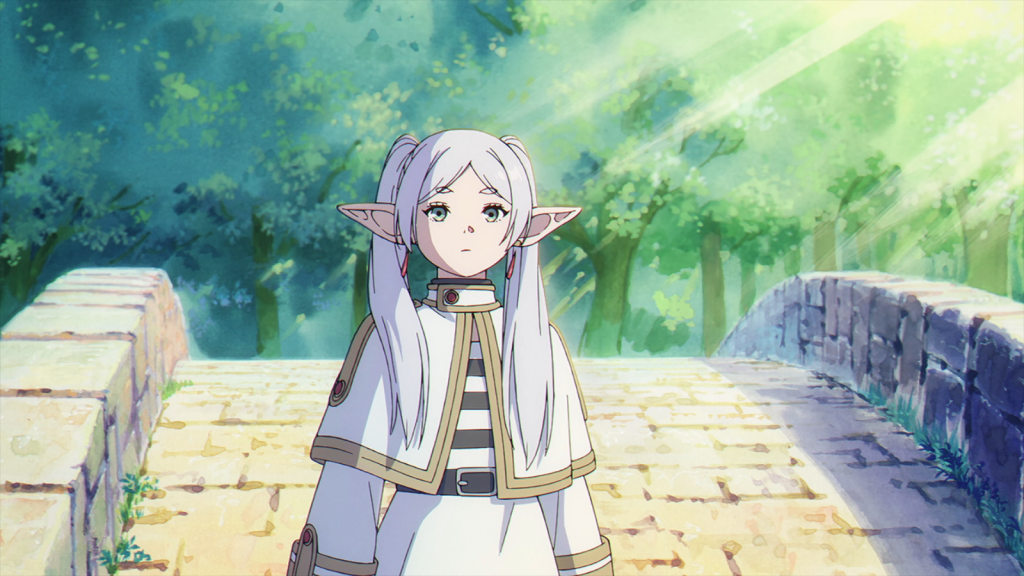
The art-style and character designs for Frieren are quite simple, but also memorable and charming. The color pallet is very light, and the backgrounds and scenery are soft and vague, almost like impressionistic paintings. All the creatures look cool, cute, or interesting, from the seed rats in episode 2 to the solar dragon in episode 6 and more. Frieren put a lot of time into making classic but colorful creature designs.
The voice-acting has been so much fun for me to hear because I basically know the whole cast. It was both funny and impressive to hear Nobuhiko Okamoto (Himmel) doing an old man’s voice. Atsumi Tanezaki (Frieren) sounds just the same as she does in The Ancient Magus’ Bride, where she played Chise. She’s capable of incredible range, but this role didn’t call for it. As for other audio elements, the opening and ending songs are both fine, and there are some beautiful OSTs that sound medieval or Celtic at times.
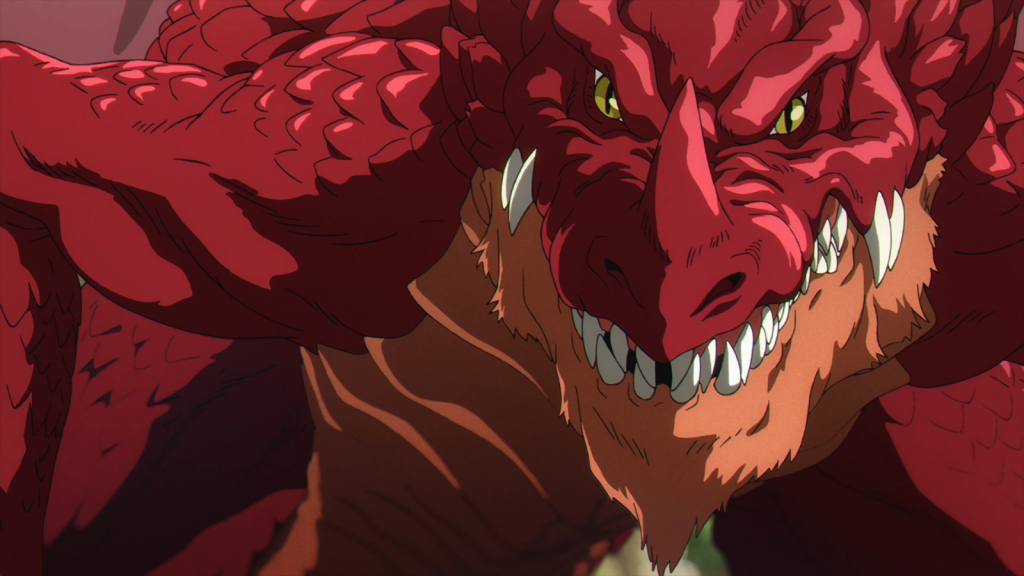
The story concept of Frieren – about an elf outliving all her friends in the adventurer’s party – was interesting on its face. Even more impressively, the execution of this concept was excellent. World-building is done well throughout these episodes, too. The story-crafting is terrific all around. Character concepts and development were also top-notch. There’s no mistaking the fact that Frieren is a high-quality anime by any measure.
Now that I’ve discussed some general production notes, let’s get into the meat of this blog post: the notes I took for each episode (1 through 9). Some entries are way longer than others, but most of them are quite brief.
Notes on Episode 1: The Journey’s End
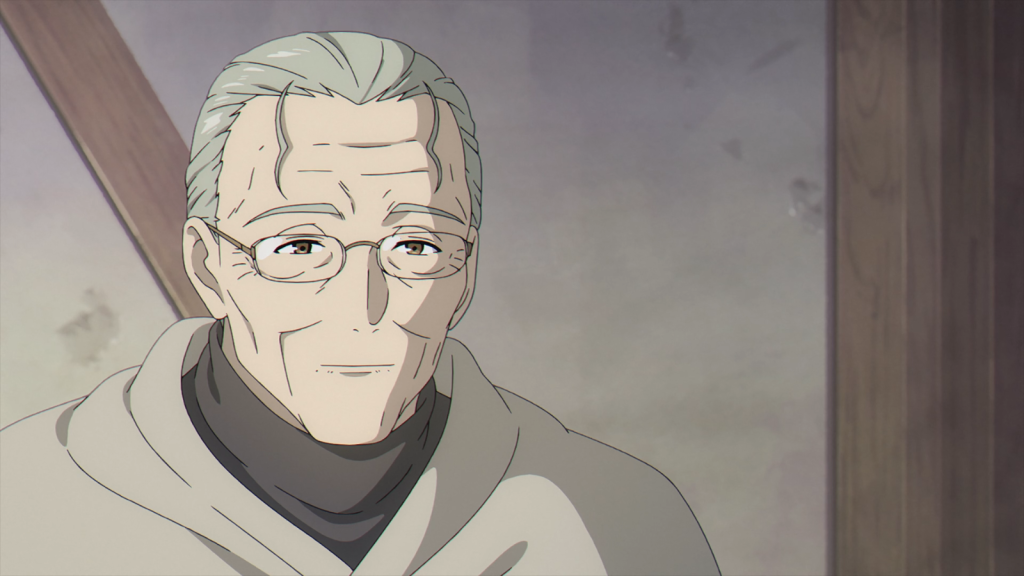
The first episode did a good job mixing humor and light-hearted character interactions with sad and serious moments. I liked meeting all the members of the Hero’s Party. Aside from Frieren herself, Heiter the Priest was the most appealing one to me in terms of personality. I especially love the repeated gag that he’s a “corrupt priest” because of his heavy drinking and generally carefree attitude. What a great character!
The most important thing I learned from this episode is that Frieren is certainly not heartless. She may be detached and apathetic most of the time, but she cried when Himmel was being buried. The Hero’s death inspired Frieren to learn more about humans. That truly moved me.
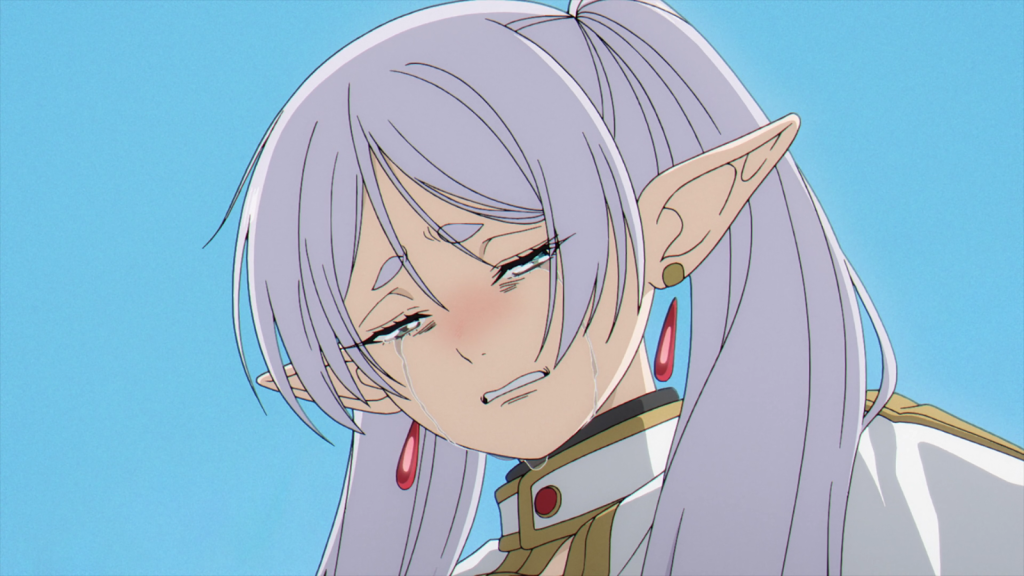
It seems like Frieren is going to get along fine with Fern. Since the Elf is unusually calm, inexpressive, and obsessed with magic, she might see a bit of herself in the little girl. After all, Fern is already an extremely focused student who doesn’t show much normal kiddish emotion. She said she only liked magic “somewhat” despite clearly being very invested in it. When Frieren heard that, she actually smiled. It was a great moment.
Notes on Episode 2: It Didn’t Have to Be Magic
The story of how Heiter saved Fern was sweet but very sad. It shows that the world of this anime is quite dark behind the flowery visuals. Fern was the last survivor of her village. I suppose she realized that, as a small child all alone, she wouldn’t survive. So, she was actually going to throw herself off a cliff. I’m so glad Heiter stopped her.
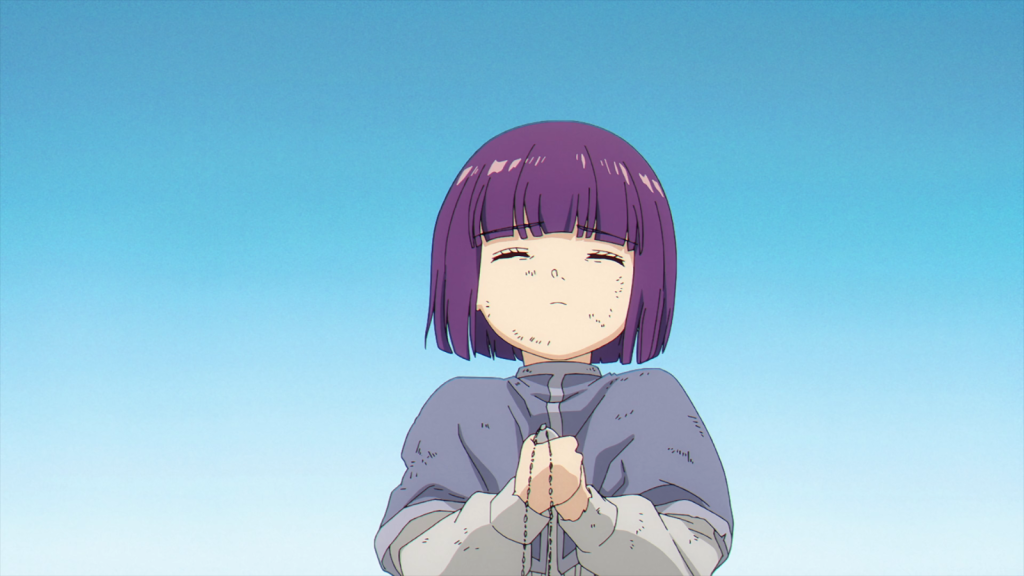
Speaking of Heiter, it was interesting that they didn’t actually show his death or his farewell to Fern. I’m not used to this narrative style, which shows you the basic ideas but often skips over specific events. Anyway, I think Heiter must have died peacefully. I’m glad Frieren and Fern stayed with him for his last days.
Frieren’s search for the blue moon weed seemed strange until I understood it at the end of the episode. She regretted that she never got to see those flowers with Himmel in his hometown. This was her way of making it right and honoring Himmel. It took six months. In the meantime, Fern’s frustration was real and I sympathized.

Fern and Frieren are similar in their dedication to magic. At first, Fern insisted that she only liked magic somewhat. She would have been happy for any skill that would let her become independent. It didn’t have to be magic. Frieren’s response was, “But you chose magic.” That made Fern smile. Her personal decision was important and should not be downplayed. This is the kind of character psychology I love to see in anime.
Notes on Episode 3: Killing Magic
Frieren’s attempt to get to know Fern and honor her birthday was heartwarming. It was also humorous to learn that Frieren sometimes wastes money on unnecessary items. Fern is similar to Frieren in many ways – such as lack of emotional expression — but she already understands much more about human communication than the Elf does. But Fern usually explains what’s important, like when she told Frieren, “I’m overjoyed because you tried to get to know me.”

The rapid evolution of magic over the last eighty years was extremely interesting to learn about. Magic, in this world, evolves in a similar way to technology. Humans discover it (or copy it), develop it, and normalize its use in their society. Qual’s highly lethal spell, Zoltraak, is now “normal offensive magic” and relatively easy for a mage to block. The defeat of Qual was satisfying know that he killed so many people.
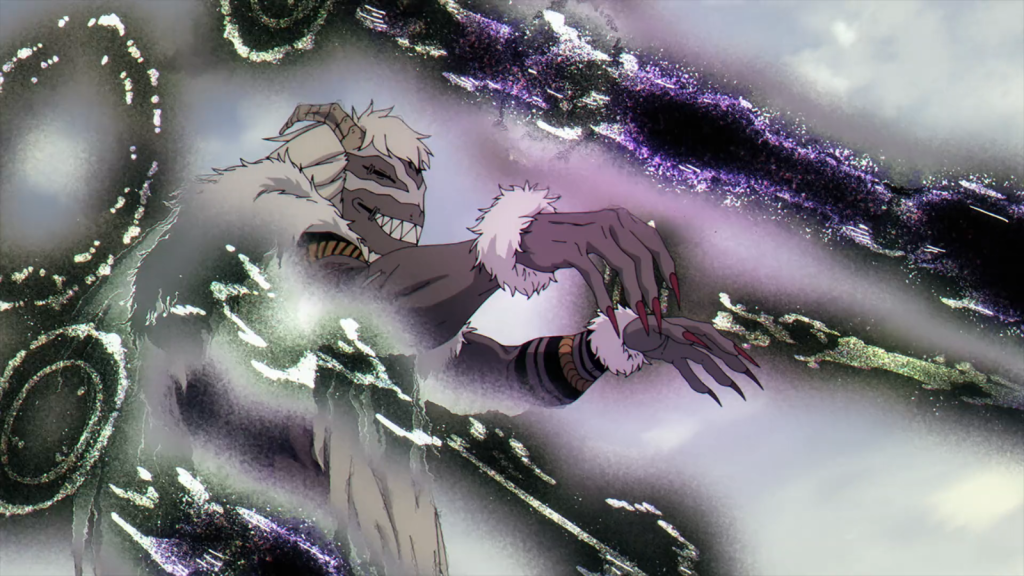
Notes on Episode 4: The Land Where Souls Rest
It was amusing to see Frieren’s troubles with getting up in the morning. The way she relies on Fern to help her get up and get moving is cute. As for Fern, she’s a little fussy sometimes, but you can tell she loves Frieren and thinks it’s worth it.
Frieren is slowly getting better at understanding humans. More than that, she’s starting to retroactively understand things about Himmel and the others that she didn’t comprehend before. The New Year’s sunrise was a great example of that. Himmel said Frieren would enjoy the sunrise – not because of the view itself, but because she would see her friends enjoying themselves. When Frieren understands this, it’s a truly heartwarming moment.
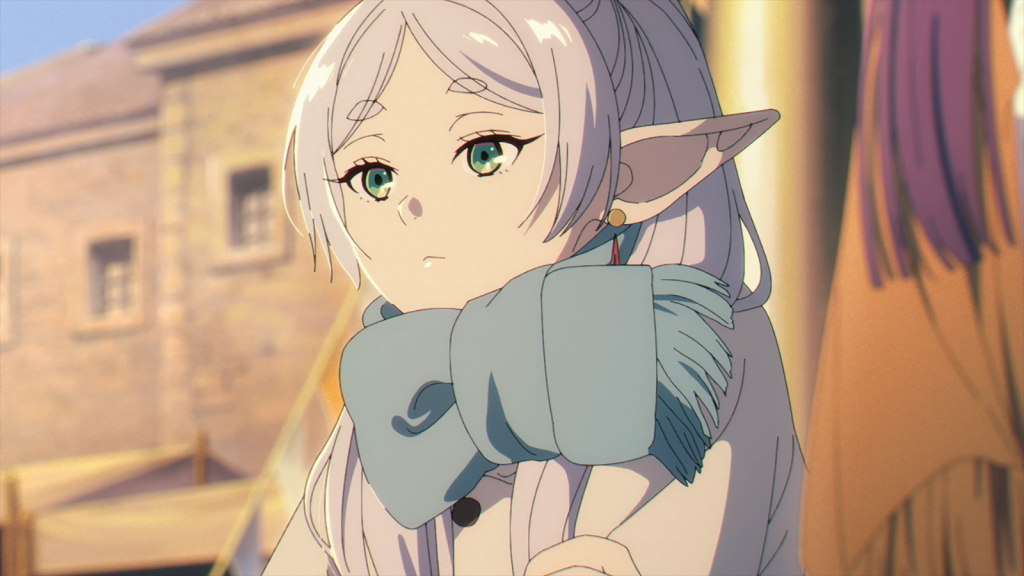
Fern told Eisen that Frieren might not be very interested in her. After all, she seems so distant most of the time, and it’s hard to know what she’s thinking. A lot of the issues Frieren has with others come down to her lack of expression. I’m sure it must be hard to be like that and have so much trouble communicating. But I’m on the other end of the spectrum, where I can’t hide my feelings and am easily manipulated. Neither of the two extremes is fun. That’s just a personal observation.

Warning: Long ramble ahead about afterlife stuff. Feel free to skip.
The group’s conversation about heaven in the flashback was interesting. I liked hearing all the characters’ perspectives on the matter. Heiter believes in heaven because a) it’s convenient and easy to live thinking you will have a good afterlife, and b) others who work even harder definitely deserve a good afterlife. But just because something is convenient doesn’t mean it exists. And just because hard-working people deserve to be happy doesn’t mean that they will be. I can’t wrap my head around Heiter’s thinking, nor did I find it amusing or touching as the others seemed to do.
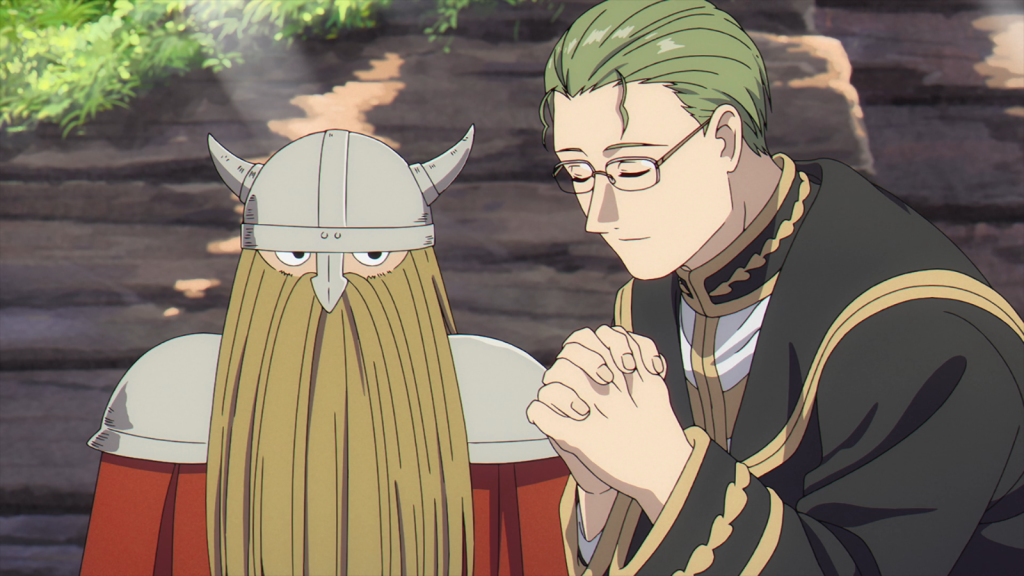
As for me, if I were in that world, nothing would really change about me. I wouldn’t believe in an afterlife unless or until there was a way to demonstrate its existence. However, assuming I could use magic in that world, I might focus my magic research on trying to detect souls. After all, magic in that world has even more potential than technology in our world. In this reality, a lot of research has already been done, and there is still no indication of anything like a soul. That’s why I’m not pursuing it in this reality.
It was great to see Eisen again and learn of the new mission he has entrusted to Frieren. Although we only saw a little bit of her in a flashback, Flamme the Mage sounds like a fascinating person. This show does a good job introducing powerful character concepts and meaningful character dynamic within short time frames.
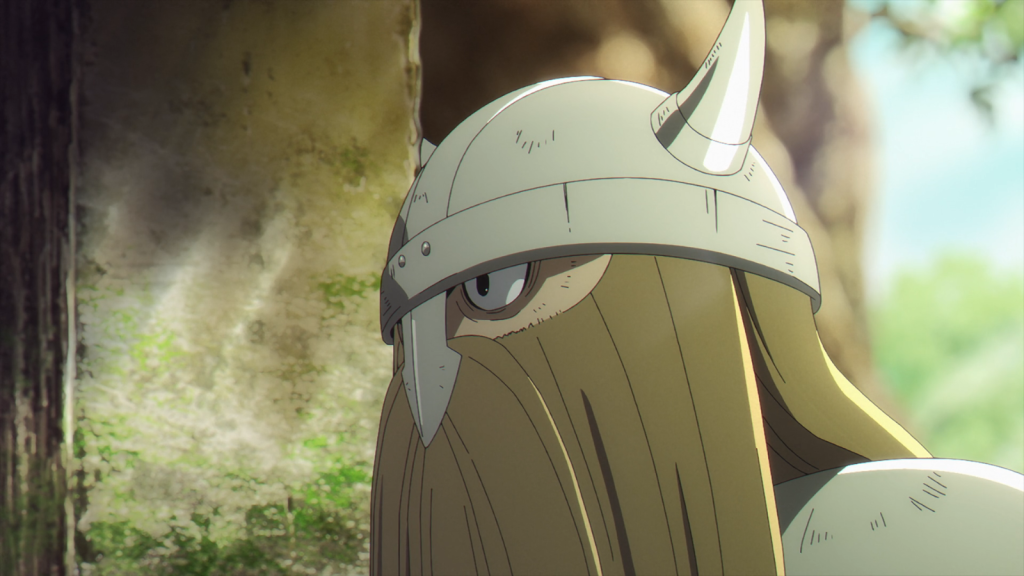
Notes on Episode 5: Phantoms of the Dead
The Einsam was an impressive and cruel monster. I expected Fern to fall for the illusion of Heiter once it referenced the conversation about visiting after death. Instead of being deceived, however, Fern knew right away that the monster was drawing from her memories. Nevertheless, she was somewhat stunned and slow to act. Frieren shot the illusion of Himmel first, exposing the real body of the Einsam. Then Fern was finally able to shoot it, killing the monster.
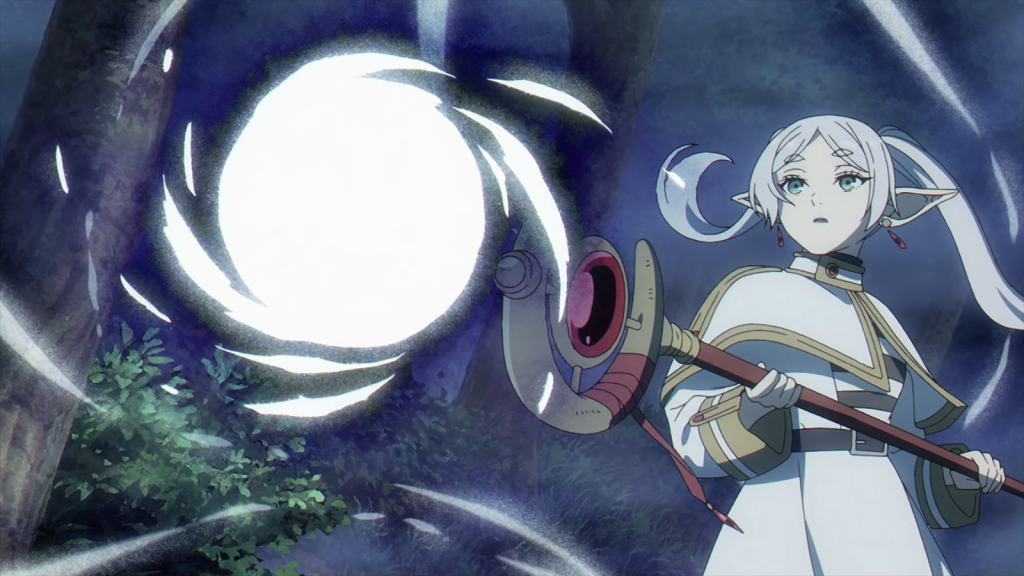
Stark seems like a promising character. I easily tire of overpowered male characters as well as those who are weak but absurdly confident. Though Stark may indeed develop into one of these types, he starts off as a timid young man with a strong survival instinct. Others call him a coward, but I don’t like that word. It’s fine to use it on fictional characters, but in reality, “coward” is just an unhelpful, destructive word thrown at people with anxiety issues.
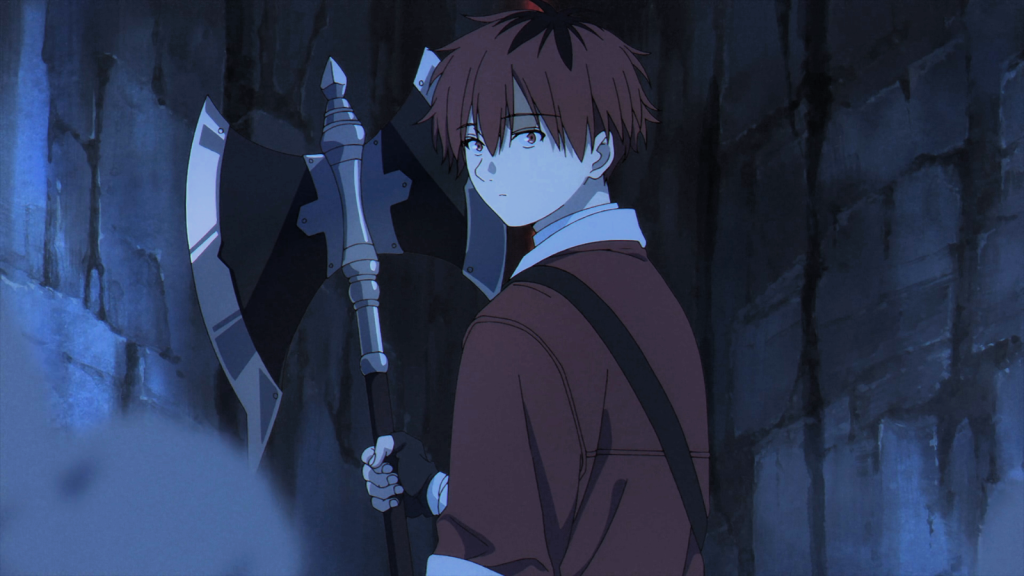
Notes on Episode 6: The Hero of the Village
Learning that Eisen was also afraid before battle was eye-opening. It made the dwarf warrior seem much more realistic. I hope he can make things right with Stark before he passes away from old age. Eisen should not have struck his young student, but as he explained, it was an involuntary, instinctual response. I can’t blame him.
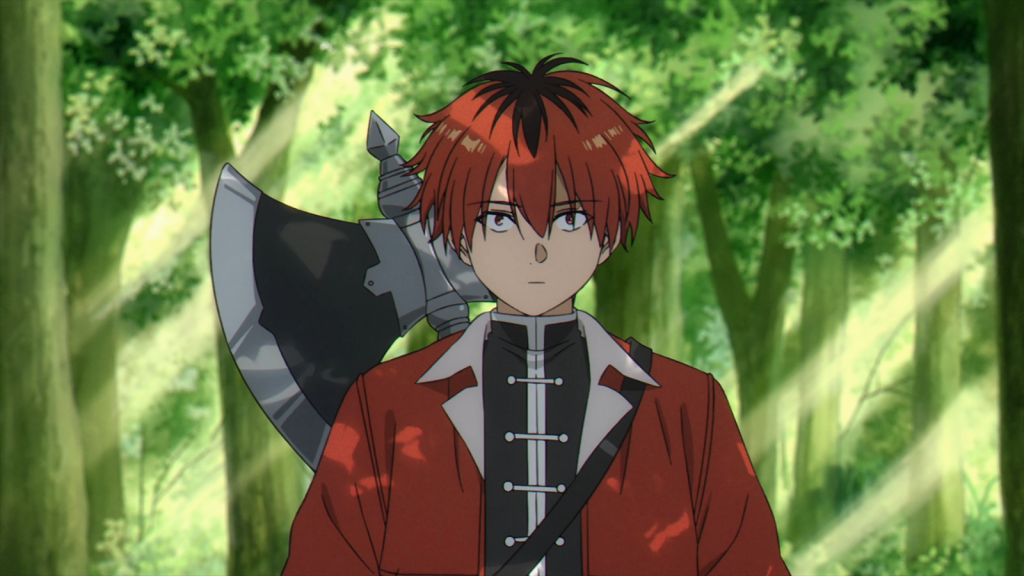
It was really inspiring to watch Stark defeat the dragon all by himself. I sometimes have trouble getting into the shoes of heroic male characters, but Stark’s courage made me feel empowered. I like him and I don’t think he is a coward by any measure.
We got to know Stark and Fern a little better from their interactions with each other in the town. I enjoy both of their personalities. Like Fern, I was pleasantly surprised at how easygoing Stark turned out to be. I don’t think Stark deserves so many disappointed looks from Fern, but hopefully she will warm up to him. When the two were talking on the wall, it seemed like they got closer. Stark feels like a member of the group now.
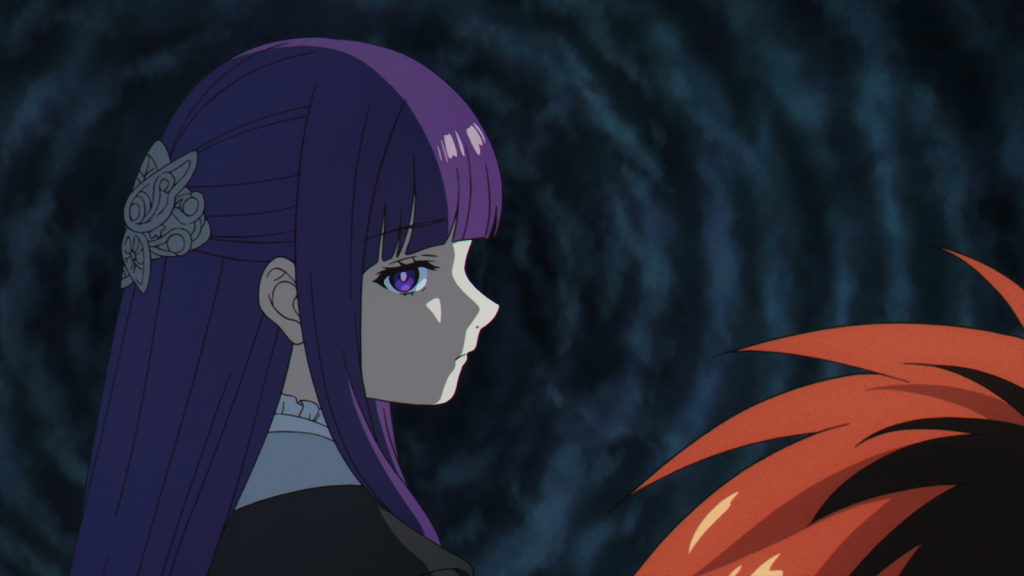
Notes on Episode 7: Like a Fairy Tale
This was the best episode of Frieren yet, in my opinion. There wasn’t much of consequence until about 9 minutes into the episode, which is when the demon envoys appeared in the town. The arc with the demon envoys is amazing because it explores several interesting themes and bits of character psychology. Plus, it has some exciting fight scenes and more world-building.
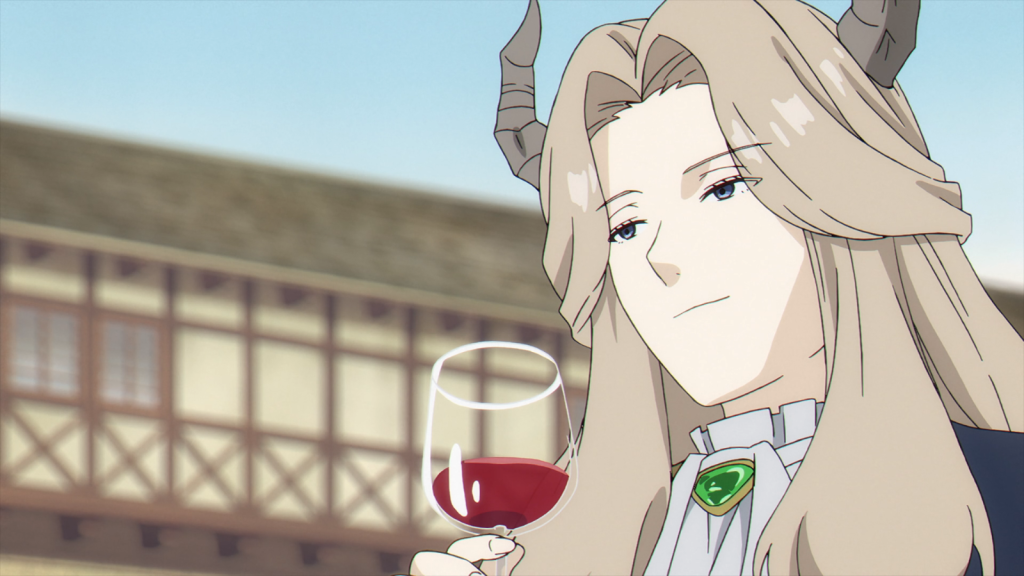
Before we discuss the demons, I have one note about elves. This is a good example of world-building. Frieren said elves are uninterested in romance and procreation “across the board.” In other words, elves are by default aromatic and possibly asexual. That’s super interesting. Unfortunately, it does mean they are slowly going extinct. It also makes me wonder how the initial population ever reached stable levels, as I assume it did at some point in history. Fascinating.
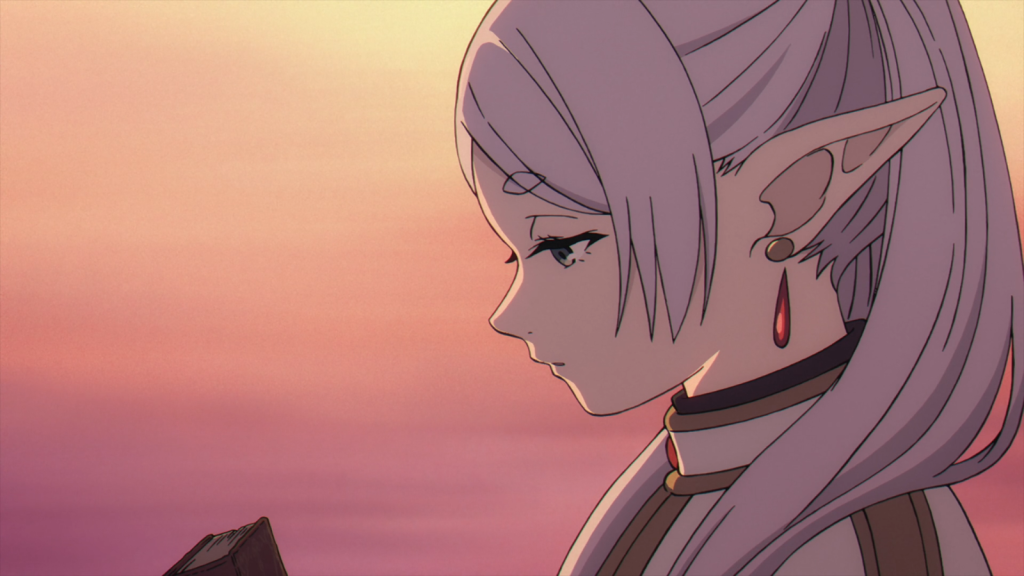
Now, onto the demons. At first, I thought Frieren must be wrong and there must surely be demons we could call “good.” And technically, it’s still possible that a demon could somehow mutate or enchant itself to be able to feel empathy and remorse. But aside from weird hypotheticals like that, all demons are sociopaths.
As solitary animals, demons have no concept of family, and do not feel empathy. (Though that does make me wonder how they manage to form armies and kingdoms.) They are far more dangerous than human sociopaths because they are also predators that see humans as food. Naturally, you don’t negotiate with food.
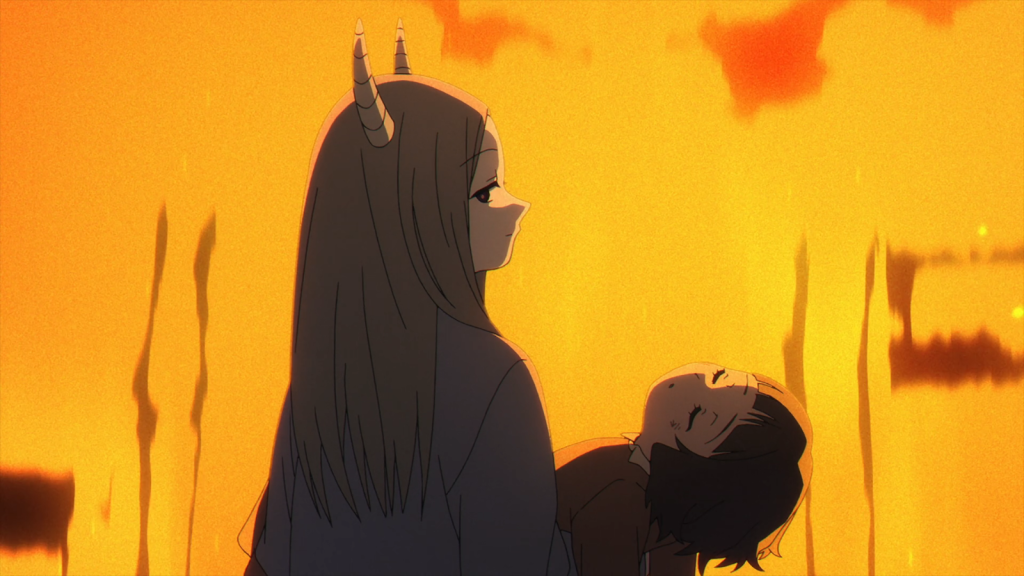
Frieren’s memory of the demon child was powerful. It was a really well-written story about how sociopaths can’t understand empathy and only want to use people. I also liked that the demon child explained that she was just trying to live. But for her, living entails harming or eating humans. In the end, she ate her “sister” and then murdered the village chief to seize his daughter as a “replacement” for the parents. Very logical.
Frieren doesn’t necessarily hates demons, but considers them dangerous wild beasts. As such, they should be killed and not allowed near humans. This is also very logical. I can’t wait to see how Frieren will deal with the demon envoys now. On a final note, the character design for Lugner the demon is amazing.
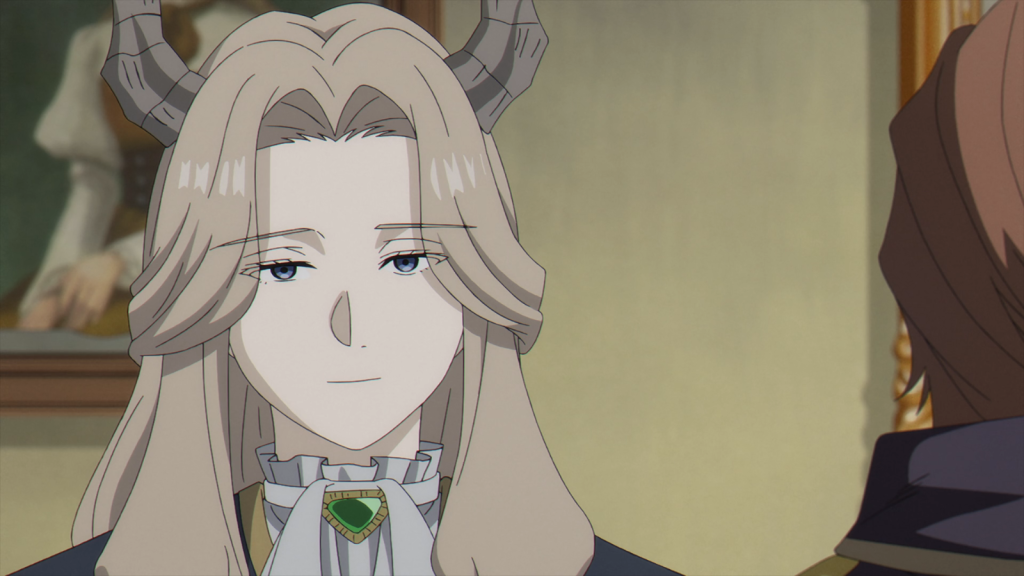
That’s all for today. Next time, I’ll go over my notes for episodes eight through fourteen.
Thank you for reading~
PATREON

